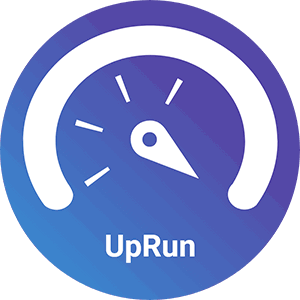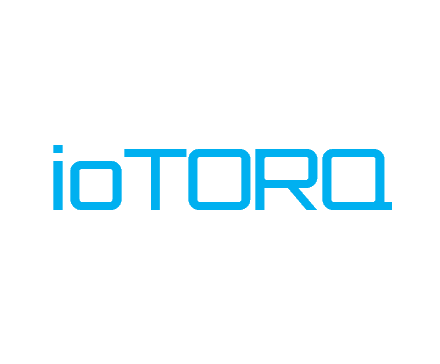Description

Kiran ERP for Manufacturing

LeaderMES
Comprehensive Overview: Kiran ERP for Manufacturing vs LeaderMES
Kiran ERP for Manufacturing and LeaderMES are both software solutions aimed at enhancing efficiency and effectiveness in manufacturing operations. Below is an overview of each with respect to their primary functions, target markets, market presence, and differentiating factors.
Kiran ERP for Manufacturing
a) Primary Functions and Target Markets:
-
Primary Functions:
- Comprehensive Enterprise Resource Planning (ERP) system that integrates various business processes.
- Modules often include inventory management, sales and distribution, finance and accounting, human resources, and production planning.
- Real-time data analytics and reporting capabilities for informed decision-making.
- Workflow automation to streamline manufacturing operations.
- Supply chain management to optimize procurement and logistics.
-
Target Markets:
- Small to medium-sized manufacturing enterprises (SMEs) looking for scalable ERP solutions.
- Industries such as automotive, electronics, machinery, and consumer goods where complex production processes require efficient management.
b) Market Share and User Base:
- Kiran ERP is a competitive player in the market, especially among SMEs due to its cost-effectiveness and scalability.
- It may not hold significant market share compared to larger ERP providers like SAP or Oracle, but it has a steady user base within its focused market segment.
c) Key Differentiating Factors:
- Known for its flexibility and customization options which allow businesses to tailor the ERP system to their specific manufacturing needs.
- Strong focus on ease of use and quick deployment, making it suitable for enterprises with limited IT infrastructure.
- Provides a cost-effective solution with a good balance of features suitable for small and medium-sized enterprises.
LeaderMES
a) Primary Functions and Target Markets:
-
Primary Functions:
- A Manufacturing Execution System (MES) that focuses on optimizing production operations on the shop floor.
- Offers real-time monitoring and control of production processes.
- Advanced analytics for operational efficiency and performance optimization.
- Integration with IoT devices for smart manufacturing capabilities.
- Quality management features to ensure compliance with industry standards.
-
Target Markets:
- Predominantly targets larger manufacturing firms that require sophisticated MES solutions.
- Suitable for sectors like pharmaceuticals, aerospace, automotive, and food & beverage where precision and compliance are critical.
b) Market Share and User Base:
- LeaderMES holds a more niche position within the larger context of MES solutions, appealing to industries that prioritize advanced manufacturing technologies.
- While not the largest player in terms of overall market share, it boasts a dedicated user base that seeks specialized MES capabilities.
c) Key Differentiating Factors:
- High emphasis on incorporating Industry 4.0 technologies with IoT and smart factory solutions.
- LeaderMES is designed to offer deep integration with existing ERP systems, serving as a complementary layer that enhances shop floor connectivity.
- Known for its detailed data analytics and visualization tools that help manufacturers improve operational performance and product quality.
- Offers a user-friendly interface and customizable dashboards tailored to various manufacturing roles and processes.
Comparative Overview
When comparing Kiran ERP and LeaderMES, the key differences lie in their core focus and application within manufacturing:
- Focus and Breadth of Solution: Kiran ERP offers a comprehensive, business-wide ERP solution, while LeaderMES zeroes in on shop floor operations and real-time process monitoring.
- Target Market Size: Kiran ERP is more focused on SMEs, whereas LeaderMES targets medium to larger enterprises with complex production needs.
- Technology Integration: LeaderMES is more aligned with manufacturing automation and IoT integration, making it suitable for advanced manufacturing environments.
- Market Position: Both solutions are niche players with focused audience segments, providing specialized solutions that address specific operational challenges in manufacturing.
In summary, both Kiran ERP and LeaderMES provide valuable solutions to the manufacturing sector but cater to distinct needs and operational focuses. The choice between these systems would largely depend on a manufacturer's specific requirements, size, and technological maturity.
Contact Info

Year founded :
Not Available
Not Available
Not Available
Not Available
Not Available

Year founded :
2003
+972 4-999-0705
Not Available
Israel
Not Available
Feature Similarity Breakdown: Kiran ERP for Manufacturing, LeaderMES
When comparing Kiran ERP for Manufacturing and LeaderMES, it's important to delve into their features as they both cater to the manufacturing sector but may have distinct offerings and interfaces. Here's a breakdown of their similarities and differences:
a) Core Features in Common
Both Kiran ERP for Manufacturing and LeaderMES are designed to enhance manufacturing efficiency and typically share these core features:
-
Production Planning and Scheduling: Both software solutions offer tools to plan and schedule production tasks, aiming to optimize resource utilization and minimize idle time.
-
Inventory Management: They provide robust inventory tracking and management capabilities, ensuring real-time visibility into stock levels and movements.
-
Quality Management: Both have features to manage quality control processes, helping manufacturers maintain product standards and compliance.
-
Reporting and Analytics: Each software includes powerful reporting tools that allow users to generate detailed reports and insights from their manufacturing data.
-
Work Order Management: They enable the creation, tracking, and management of work orders to streamline manufacturing processes.
-
Supply Chain Management: Systems to manage suppliers and procurement processes are included in both software solutions.
b) User Interface Comparison
Kiran ERP for Manufacturing:
- Interface Design: Tends to have a more traditional ERP interface, which may be more complex but comprehensive, catering to users accustomed to classic ERP systems.
- User Experience: Focused on providing in-depth details and comprehensive functionalities but may require a steeper learning curve for new users.
LeaderMES:
- Interface Design: Generally features a more modern, intuitive user interface that emphasizes ease of use and accessibility.
- User Experience: Designed to be user-friendly and visually appealing, with a focus on simplifying the MES (Manufacturing Execution System) processes for operators on the plant floor.
c) Unique Features
Kiran ERP for Manufacturing:
- Customization and Flexibility: Offers high levels of customization, allowing manufacturers to tailor the software to their specific business processes and requirements.
- Industry-Specific Modules: Provides modules that are highly specialized for certain manufacturing industries, such as automotive or food and beverage.
LeaderMES:
- Real-Time Shop Floor Monitoring: Provides more advanced real-time monitoring and control of shop floor activities, enabling immediate response to any disruptions or inefficiencies.
- IoT and Automation Integration: Features better integration capabilities with IoT devices and automation systems, aiming to enhance smart manufacturing and Industry 4.0 initiatives.
In conclusion, while both Kiran ERP for Manufacturing and LeaderMES share essential manufacturing features, they differ significantly in terms of user interface and certain unique functionalities. The choice between them would typically depend on the manufacturer's specific needs—whether they prioritize comprehensive ERP capabilities and customization (Kiran ERP) or a modern interface with advanced real-time shop floor monitoring (LeaderMES).
Features

Reporting & Analytics
Production Management
Supply Chain Management
Financial Management
Quality Assurance

Maintenance Management
Production Monitoring
Quality Management
Resource Planning
Reporting and Analytics
Best Fit Use Cases: Kiran ERP for Manufacturing, LeaderMES
Kiran ERP for Manufacturing and LeaderMES are both specialized tools designed to enhance manufacturing operations, but they cater to different needs and business environments. Here’s a breakdown of their best fit use cases:
Kiran ERP for Manufacturing
a) Best Fit for Types of Businesses or Projects:
-
Small to Medium-Sized Manufacturers: Kiran ERP is ideal for small to medium-sized manufacturing businesses looking for comprehensive ERP solutions that are scalable and cost-effective. These businesses benefit from Kiran’s ability to manage a range of operations without the need for extensive customization.
-
Discrete and Process Manufacturing: Businesses in discrete manufacturing (such as electronics, machinery, and automotive) and process manufacturing (like food, chemicals, and pharmaceuticals) can leverage Kiran ERP's capabilities to streamline production processes and ensure regulatory compliance.
-
Project-Oriented Manufacturing: Companies that rely on project-based work, such as custom fabrication or engineering-to-order environments, can utilize Kiran ERP to manage project timelines, resources, and costs effectively.
d) Catering to Different Industry Verticals or Company Sizes:
Kiran ERP caters well to various industry verticals with its modular approach, allowing businesses to pick and choose functionalities that align with their specific industry needs. Its scalability is a key advantage, making it suitable for companies that anticipate growth.
LeaderMES
b) Scenarios for Preferred Use:
-
Real-Time Production Monitoring: LeaderMES excels in scenarios where manufacturers need real-time insights into their production floor. It is best suited for environments that require constant oversight to maximize efficiency and reduce downtime.
-
Continuous Improvement Initiatives: For businesses focused on lean manufacturing and continuous improvement strategies, LeaderMES provides tools for tracking performance metrics and identifying areas for optimization.
-
High-Volume Manufacturers: Companies with high-volume production environments benefit from LeaderMES, as it facilitates rapid response to production issues and detailed analysis of machine performance and utilization.
d) Catering to Different Industry Verticals or Company Sizes:
LeaderMES is particularly valuable to industries that require stringent process control and data collection, such as automotive, aerospace, and electronics. Its focus on operational efficiency makes it a better fit for larger enterprises or those heavily invested in automation and manufacturing technology integration.
In summary, Kiran ERP for Manufacturing is best for small to medium-sized manufacturers looking for a robust, scalable ERP solution that covers a broad spectrum of business operations. LeaderMES, on the other hand, is ideal for businesses requiring real-time production monitoring and data-driven decision-making to support lean practices and operational efficiency in high-volume environments.
Pricing

Pricing Not Available

Pricing Not Available
Metrics History
Metrics History
Comparing undefined across companies
Conclusion & Final Verdict: Kiran ERP for Manufacturing vs LeaderMES
Certainly! Below is a conclusion and final verdict for Kiran ERP for Manufacturing and LeaderMES, addressing the requested points:
Conclusion and Final Verdict
a) Best Overall Value:
Considering all factors including functionality, scalability, cost, and user experience, Kiran ERP for Manufacturing seems to offer the best overall value for manufacturing businesses seeking a comprehensive solution. Its robust features tailored specifically for manufacturing, combined with competitive pricing and strong customer support, make it an appealing choice for companies looking for a full-fledged ERP system.
b) Pros and Cons of Each Product:
Kiran ERP for Manufacturing:
Pros:
- Industry-Specific Features: Offers specialized modules for manufacturing processes, inventory management, and production planning.
- Scalability: Can accommodate the growth of small to medium-sized enterprises, adapting to increasing demands.
- Integration Capabilities: Seamlessly integrates with other business systems, providing a unified platform for operations.
Cons:
- Complexity: May be overwhelming for businesses unfamiliar with ERP systems, requiring more extensive training.
- Implementation Time: Can have longer implementation times compared to smaller, more streamlined solutions.
LeaderMES:
Pros:
- User-Friendly Interface: Known for its intuitive design, making it easier for users to adopt and navigate.
- Real-Time Monitoring: Provides excellent real-time monitoring and analytics, which is crucial for operational efficiency.
- Flexibility: Offers flexibility in scaling and adapting to various manufacturing environments.
Cons:
- Limited Features for Large Enterprises: While excellent for small to mid-sized manufacturers, it may lack some of the advanced features required by larger companies.
- Higher Customization Costs: Customization might be necessary for specific needs, potentially increasing costs.
c) Recommendations for Users:
For users trying to decide between Kiran ERP for Manufacturing and LeaderMES, consider the following:
-
Assess Business Size and Needs: If your business is a large manufacturing enterprise with complex needs, Kiran ERP may offer the comprehensive capabilities you require. For small to medium-sized businesses looking for a straightforward, reliable solution with excellent real-time monitoring, LeaderMES could be more suitable.
-
Budget Considerations: Evaluate your budget for ERP solutions. Kiran ERP might require a higher upfront investment but provides extensive features. LeaderMES could be a more budget-friendly option if your needs are less complex.
-
Implementation and Training: Consider the resources you have available for training and implementation. If you have limited time or expertise, LeaderMES might be easier to integrate and use without lengthy training prerequisites.
-
Future Growth: If you anticipate significant growth, ensure the solution you choose can scale with your business. While both options offer scalability, Kiran ERP might be better suited for supporting extensive growth.
Ultimately, the choice between Kiran ERP for Manufacturing and LeaderMES will depend on specific business needs, size, and long-term strategic goals. Making a decision involves carefully weighing the strengths and limitations of each system against your organizational priorities.
Add to compare
Add similar companies




